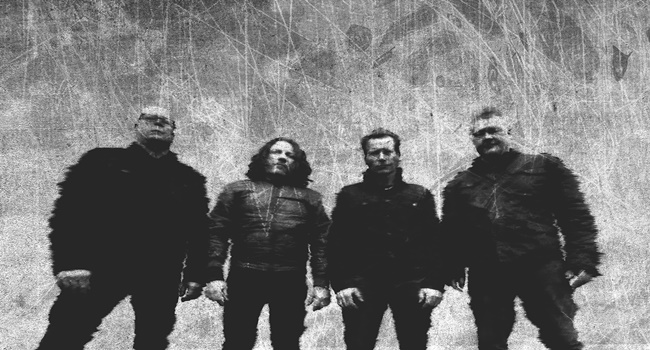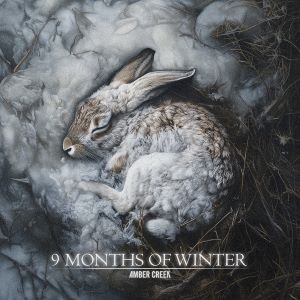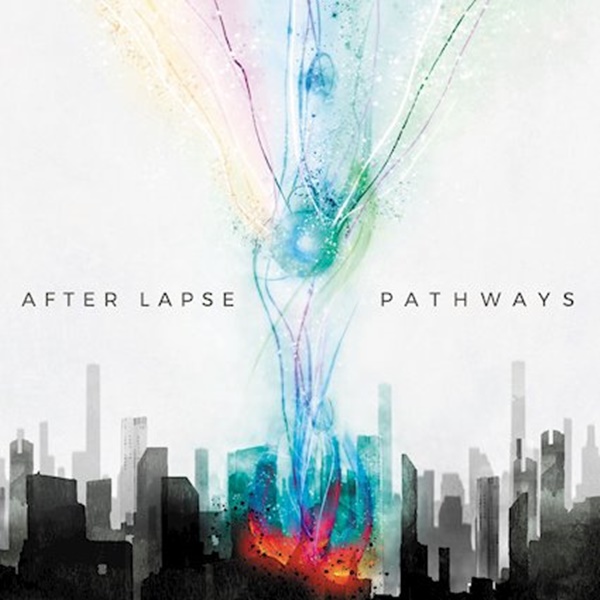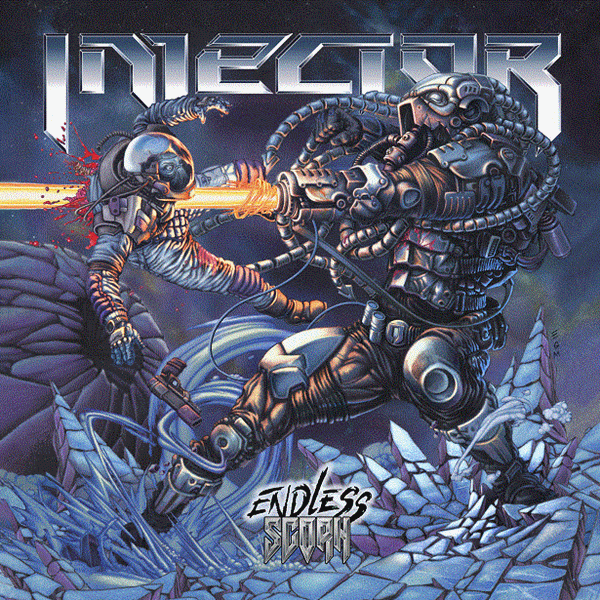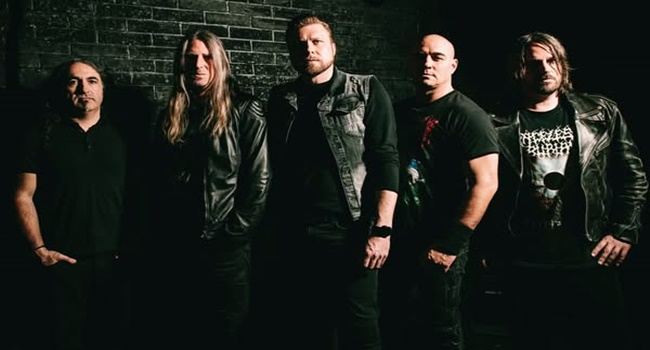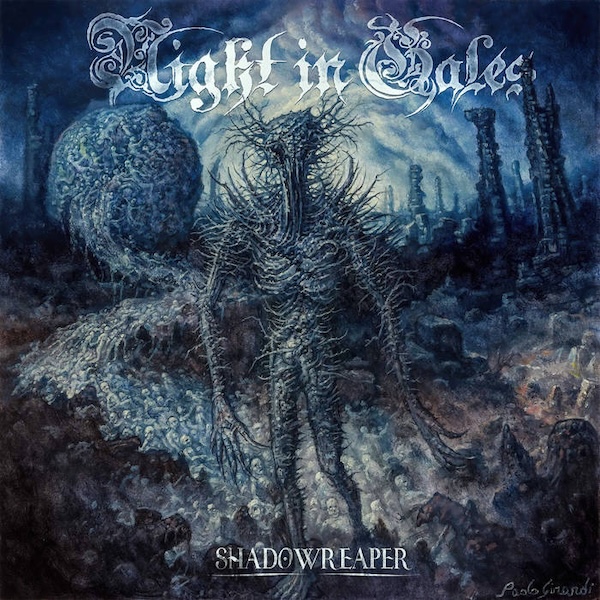Photo: Roeluf Witmans
When it comes to fusing together music in a way that remains ear pleasing while also expansive, progressive, or atmospheric, the results can be mind-altering if done correctly. Such is the case here for Danish band Alkymist – together since 2016 and issuing albums that can be progressive one moment, sludgy and doom-heavy the next, all within the metal umbrella. Their latest album UnnDerr embraces a more direct attack, still containing the right elements of melody and groove next to a progressive, atmospheric and aggressive platform. We spoke to bassist Kaspar Luke regarding the long journey to reach the final results for the new record, how guitarist Stefan Krey’s wrist injury put a delay in the proceedings, thoughts on his bass play and its importance for the band’s sound, the impact of live concerts in his life, the importance of love for a better state of the world, and what’s in the pipeline for the band’s future.
Dead Rhetoric: UnnDerr is the third studio full-length album for Alkymist. The record took over three years to develop – including a shift in drummers as well as initially trashing some recordings to develop others. How do you feel about the development of the performances and material over this time period – what circumstances took place that had to be worked out to reach a final product that you were all happy with?
Kaspar Luke: It was like a whole big ordeal actually. We started, Stefan the guitar player, he’s the one who usually comes up with the first draft of a song, and then bounces it off Peter, our vocalist. They ping-pong together a couple of times to tweak the songs and make them come together. We try to figure out what the song wants, and what the music wants. Usually, some of the first renditions are quite on the money. It’s like this thing happens where the vibe of the song at first is really cool, gritty, or aggressive. And then what happens is, we took it out of the computer, the framework, and took it into the studio – all four of us would start tweaking (the material) with Philip, our old drummer. And we couldn’t agree on where we wanted it to go. We bounced things off each other for two years, trying to work these songs out and they were progressing into this different realm compared to where they were to begin with.
What happened was, we finally couldn’t agree on what the song wanted – we recorded the album, 1.0, with Philip, and it wasn’t working. We all decided it would be in our best interest to try something else. We looked at each other, the ones who were left between Stefan, Peter, and me, what are we going to do now? We have this really good friend Per, who is an awesome drummer, we called him and asked if he wanted to give this a shot. He said yes right away, and then we wanted to go back in the studio that we were familiar with, with Lasse (Ballade). He had produced the first two albums, so we just decided that was the best way to go. We know him, he knows us. Per had three months to learn all seven of the new songs, and he did it.
Now we have the album, it’s finally here. I’m really proud of it. It’s very different from the other ones, of course. It’s a different band.
Dead Rhetoric: And how is Stefan when it comes to his health – as he had to work through an injury during this recording, correct?
Luke: Yes. His hand is doing much better. He broke his hand about half way through. When he told us about what actually happened. He said at first ‘guys – I have a problem… I have a situation.’. He came with a bandage on his arm, he was out on a ship with some of his buddies and he had to jump from the ship to the pier. He slipped, fell into the water, and on the way down he smashed his hand into the pier. It broke in four different places, and he was lying in the water in November, it was cold as hell. The other guys, they couldn’t just pull him out so they had to put down a rope to him to drag him all the way to the end of the pier so they could get him out. It was quite dangerous. He survived, luckily, and with a multi-fractured wrist. It took a long time to heal, he eased into it. It was right after the coronavirus hit. There was some time where we didn’t have gigs, we had written the basic songs, but we had quite a lot of down time. It was quite an ordeal.
Dead Rhetoric: Where does the balance take place between the melody, groove, progressive, and atmospheric elements within the band’s sound?
Luke: It’s a bit of both. We have a top view of the whole album. When we work on things, we decide to work on certain things. We wanted shorter songs; we didn’t want as many epic songs as the first album. We wanted to more hard-hitting songs, heart punchers – at the same time, we can’t deny what we are, which is we grew up in progressive rock, heavy metal. We have different backgrounds, but they are all the same. Every song has its own identity. We start out trying to figure out what that identity is. At the same time, we have an Alkymist identity where the atmospheric sound, the 3-D soundscape kind of stuff is very, very important. If you just make it like one thing, where we are only going to do seven tracks of hardcore, heavy metal songs, it’s not going to be a complete album. We love this whole kind of progressive feel to it, where it pushes you into different spaces, and that there are different textures throughout the whole album. That’s what we work on a whole lot, trying to create this.
Dead Rhetoric: Symbolism and multiple layers of thought are explored on the lyrical front for this record. Where do you stand on the importance of the lyrics to mirror the musical atmosphere of the group?
Luke: It’s Peter who delivers all the lyrics. The way we work, he will listen to the song, he will wait and then put up this antenna. He will listen over and over, and some lyrics will come out of it. He reads a lot of poetry as well, and it’s very poetic about the stuff he writes. When you dive into, it’s this double-edged meaning where there is a theme, but underneath there may be a different theme. Take for example “The Scent”, which is a song about the scent of beauty, which is a weird statement to begin with, but it becomes venom. If you get entangled, it can become something really bad for you even though it’s beautiful. It has all these double meanings to it. We’ve always loved this kind of thing; you look at one thing and it might just be what it is, but it might be the exact opposite. What if you turned things upside down, could it still mean the same? Our logo for the first album, it has this crown that’s turned upside down, and that’s the same thing – looking at things underneath the surface. It’s also why the album is called UnnDerr, you’re never quite sure. It’s important that we don’t have to spell things out for you. The audience has a job as well, to create their own vision and their own story within.
Dead Rhetoric: How would you describe your approach as a bassist within Alkymist? What do you focus most on, and who has impacted your technique or style the most over the years?
Luke: That’s a good question, thank you for that. I have had a lot of idols growing up. One of my very first albums was Led Zeppelin II, so John Paul Jones is like an amazing musician. Also, Black Sabbath with Geezer Butler, I had a huge crush on Mr. Bungle, and Primus, Faith No More, Slayer – the list goes on and on. As a bass player, I have always sought how I can play like no one else. That has always been my main thing, to do something different, and something that no one else could mimic. In Stefan, he is a beautiful musician, and an awesome guitar player. When we started out, we immediately started to hone each other’s sound – how we can merge his guitar tone with my bass tone. We look at it as if I start at the bottom, he clicks in at the top, and we merge together to create this whole wall of sound. In the riffage, on top of that he goes off and makes these amazing soundscapes, a progressive three-dimensional world within the music. Peter comes on with the vocals and then just kills.
We are focused on trying to find the heaviest, most gritty, aggressive sound that is a beautiful soundscape in a progressive environment. For me, I’ve always seen Alkymist as this… the guitar and bass are equal. There are a lot of bands where maybe with two guitar players, it becomes a guitar song kind of thing. For me, I try to fill out the bottom of the world in the music. That’s sort of my job with Per on drums.
Dead Rhetoric: What do you hope the audience will take away from Alkymist when hearing/seeing the band live on stage versus what they experience on record?
Luke: I look forward to things – especially our CD release show, as it will be our first show with Per. We haven’t played live with him yet. The energy is just off the hook – the way the four of us become this vortex of energy, of groove, of aggression, and beauty. It really works in the studio, in the rehearsal room, and I look forward to sharing this with the audience. I hope they get the same kick out of things as we do.
Dead Rhetoric: What are your thoughts on the state of the heavy music scene across Denmark – do you find that you’ve made inroads in establishing a strong following domestically, or have to seek out other European / international markets that respect the style you are getting across?
Luke: The Danish music business, and the metal scene here, has been absolutely booming for the last fifteen years. There are so many off the hook, brilliant Danish bands coming out. That has really helped for the Danish metal scene to prosper. We are able to have quite a large audience within our country. But there are also more and more bands, and the tendency is these guys are going on tour across Europe, and they are making music, releasing albums, touring, and getting noticed by a lot of record labels from mainly Germany. Alkymist has never been… we are hungry in a different kind of way. We are never going to be a young metal band that wants to take over the world. Our things are about music, connecting with each other, and loving what we are doing. Doing it in a way that we can be truthful about the music that we are making. It’s about the hard work of it, that’s the payoff – when we get an album that we are really, really proud of, we are happy. And we will play some concerts, but I don’t think we are going to go on a large European tour.
Dead Rhetoric: What’s the best concert memory you have purely attending the show as a member of the audience – and what made that so special / memorable to you?
Luke: Oh, there is a lot. I go to a lot of concerts. There are too many to go into just one. One of the things I love most about life is getting right down in front of the stage and feeling the thunder on my chest and connecting with the band. Having this out of body experience with the band – listening and feeling the music, that’s my thing. I go to five to seven concerts a month, and I love it. It goes from one style to another – metal shows, pop shows, jazz shows, electronic shows. It’s very different, and I love that part of it was well. I’ve never been so much a one genre type of guy – I listen to an equal amount of The Beach Boys and Slayer. (laughs)
Dead Rhetoric: How do you view the state of humanity currently? Where do you think the biggest challenges lie in the global society as a whole to improve the quality of life for future generations?
Luke: That’s a huge question. I think we have forgotten love for each other. I think we are doing a rhetoric, and feeding a rhetoric, that’s all about them and us. We are dividing, and it’s not true. If you zoom out and look at the Earth, we are all on this Earth together, there’s no them and us. We are all humans. That would be my biggest take on what to do. Stop dividing us, we are not divided.
Dead Rhetoric: How do you define success in terms of your musical career? Has your outlook on the subject changed from when you first started as a musician to where you are at in your career today?
Luke: I have always, that’s a funny question. I dreamt about commercial success, to be a commercially successful musician, and it has never happened for me. What I have had is artistic success. I love what I’m doing, I’m really good at it, and I’m so fortunate to play with some of the best musicians in our city, in our country. I’m so happy and grateful to be able to do this. For me, I’m 46 years old and I have been doing this since I was 16, so I have thirty years of doing this. I’m so fortunate that I am still current in some way. I have people calling me and wanting to still play music with me – so I count my lucky stars on that. That is the most success I could ever wish for.
Dead Rhetoric: Have you always had the support of friends and family when it comes to your musical endeavors?
Luke: Yes, always. It’s been a huge part of me.
Dead Rhetoric: What’s on the horizon for anything Alkymist related over the next twelve months to support the new record? Any specific items you’d like to check off your bucket list to accomplish down the line?
Luke: Well, we have a couple of festivals that we really want to play. We have a small tour lined up early in the summer of 2025. Basically, we are going to just do what we do, go out and play music, and start work on the next album, number four. And this is going to be something different again, we have a different type of musician on board, so we will have a different place to start. We are going to try some new stuff, a new way of working. He doesn’t live in the same city as we do, so the distance is three and a half hours away. It’s a logistic challenge, so we have to figure out how we are going to have rehearsals, and stuff like that.


